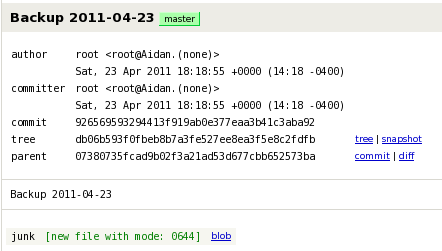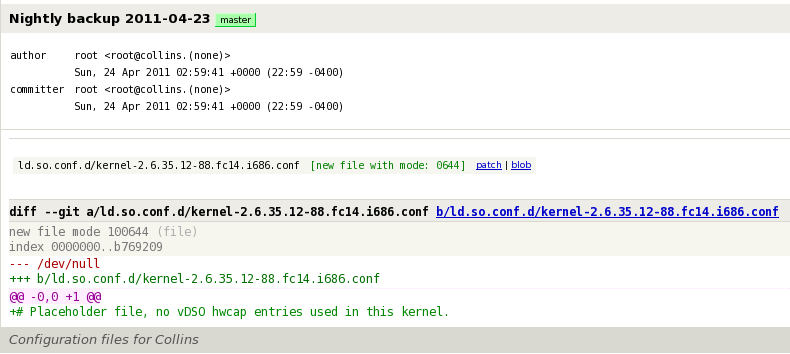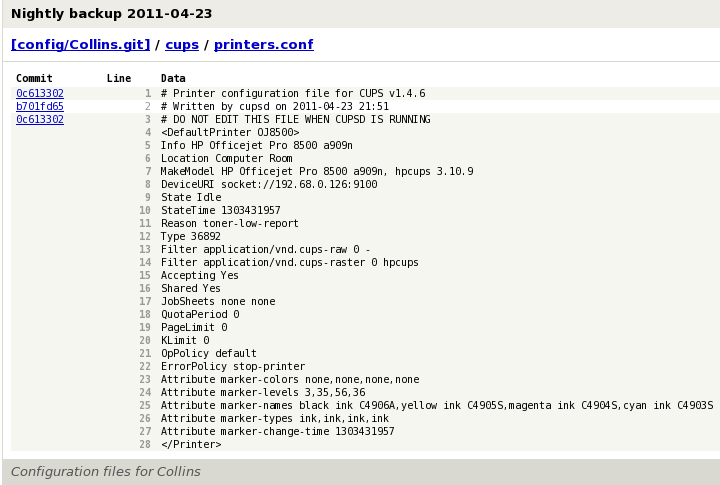OK, one of the Linux rags had something like this, but their approach used a convoluted ruby script, generated a tar file every night, and basically just did a lot more work than necessary.
The idea here is to use git to backup your configuration files. The Fedora project keeps all the web content, puppet files, etc. in git which makes for a very nice manageable system.
If you set this up, config files will be backed up each night if they change, and git will provide you of dates when anything changed, names of changed files, before/after snapshots, histories of individual files, just about anything you might want.
OK, first, make a git server. You could use gitorious or github which has the advantage of being offsite, but config files often contain passwords, so you might want to be careful about that. Let's just say you have a server on your LAN, and like me, you have symlinked /git to /var/lib/git (which makes the paths a little shorter). The root user on the target computer needs to have ssh access to the git repo.
OK, so, log on as root, I want to keep the config files for all my boxes together, so I want all those repos in a folder:
mkdir /git/config cd /git/config
Now, initialize a bare repo for the computer to be backed up
git init --bare computername.git
Especially if you are running gitweb, you may want to edit ./computername.git/description to provide a nice friendly description for the repo. This is purely optional.
Go to the /root directory of the machine to be backed up and clone the repo (logged on as root)
cd ~ git clone ssh://gitcomputername/git/config/computername.git
Go into the repo and make a .gitignore file:
cd computername emacs .gitignore
You could use gedit, kate, whatever. If you are a vi guy, that might work too. It should contain at least a line like:
*~
but over time you may find other things you want in there. Now, make an initial commit:
git add .gitignore git commit -m "Initial commit" git push origin master
This also creates the master branch in the repo so the rest goes smoothly. Next, copy the hidden git directory to /etc
cd /etc cp -r ~/computername/.git . cp ~/computername/.gitignore .
It is kind of nice to set the initial state, although the first run of the script will do this for you:
git add . git commit -m "Initial state" git push origin
Finally, put the following script on the crontab:
#!/bin/sh
cd /etc
DA=date +"%F"
git add .
if git commit -m "Nightly backup $DA" ; then
git push origin
fi
Now, any time anything in /etc changes, the a new commit with the date will be added to the repo. You can use normal git tools to see anything that has changed. gitweb is really nice for this, but gitk ain't too bad, either.
If you want to grab a particular file at a particular time git checkout will do that for you, git pull to get an entirely freshed up copy, like if you shot yourself in the foot editing. Pretty darned nice.
Example gitweb screenshots
Activity of backed-up systems
Summary of commits for a particular system
Details of a particular commit
Changes made to a file
Blame report showing commits to 'blame' for each line






